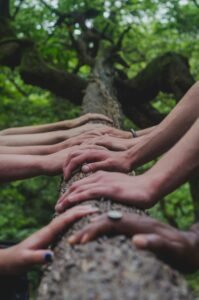Coffee, Decolonization, and the Future: The Conversation We Never Had
I often wonder: what would happen if Spain embraced its role as the first global empire — not with nostalgia or shame, but with a maturity that acknowledges both the wound and the legacy?
And what if Latin America stopped defining itself by that wound, and instead recognized itself as a source of vision, of resources, of living resilience and creativity?
What could we build if, instead, we chose the hardest but most necessary path: that of shared memory, restored dignity, and a common purpose?
This isn’t a text about guilt. It’s an invitation to imagine.
Coffee as a Mirror of Our Shared History
Every cup of coffee that crosses the Atlantic is like a message in a bottle no one reads. Hidden in those beans lies one of the harshest paradoxes of the global system:
- It is grown in the Global South, but value is added in the North.
- It is produced by farming families, but narrated by marketing agencies based in Europe or the U.S.
- It is deeply ritual at its origin (from the mountains of Chiapas to the lands of Cauca), yet filtered through labels like specialty or fair trade designed 8,000 km away.
Faced with this contrast, what if we chose to decolonize coffee so that the next question would be: what if coffee became a bridge for narrative healing?
Not as an ethical packaged product, but as a meeting ground between worlds that share language, roots, and sensitivity.

Complementary Resources: Spain and Latin America
What Latin America brings:
Biodiversity: 60% of global arabica coffee production.
Ancestral knowledge: From Guatemala’s Indigenous coffee growers to Colombia’s smallholder farmers.
Disruptive creativity: Young people blending tech and tradition (like Peru’s rural fintech initiatives).
Living languages: Spanish, but also Náhuatl, Quechua, Wayuunaiki.
What Spain can bring:
Access to Europe: A logistical and cultural bridge.
Applied technology: Experience with blockchain for real traceability.
Digital infrastructure: Platforms that don’t depend on Silicon Valley.
Ethical financing: Banking with historical justice criteria.
Both sides have what the other lacks.
What makes no sense is for one side to keep providing the land, the labor, and the stories… while the other provides the design, the voice, and the control over profits.

A Historic Opportunity to Build Bridges
This is not about erasing the past, nor idealizing it.
It’s about remembering together — and deciding what to do with that memory.
Spain has a debt to acknowledge: that its modernity was built on resources taken from others. Latin America has a challenge: to stop defining itself only by the wound, and to claim its rightful place as a source of global solutions.
Together, we could offer the world something radical: a post-colonial model of real cooperation, where we work as equals for the common good.
Change won’t come from international treaties, but from tangible projects — where a former barista in Barcelona and a coffee farmer in Huehuetenango co-design the platform that connects them.
This time, without intermediaries.